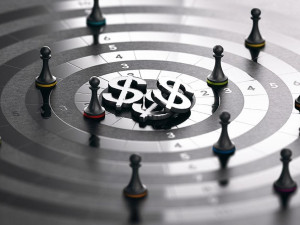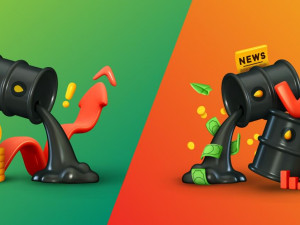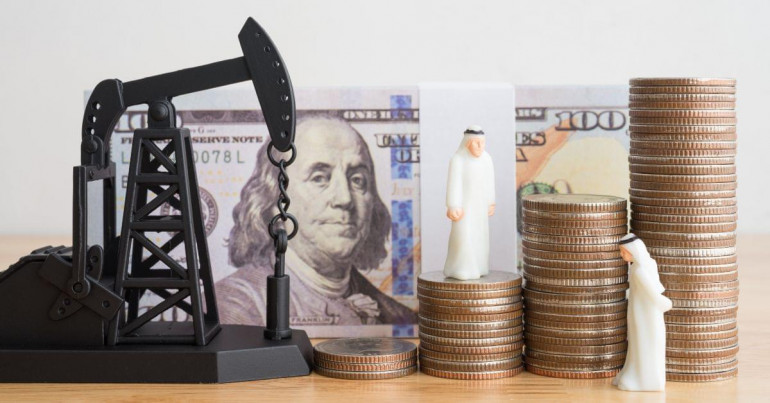
For those who have been keeping up with the news in Saudi Arabia, there have been very recent changes that Saudi Arabia has been making to drop the petrodollar – particularly regarding them leaning over to the Chinese yuan.
But what is the petrodollar, and why is Saudi Arabia’s interest in other options so significant?
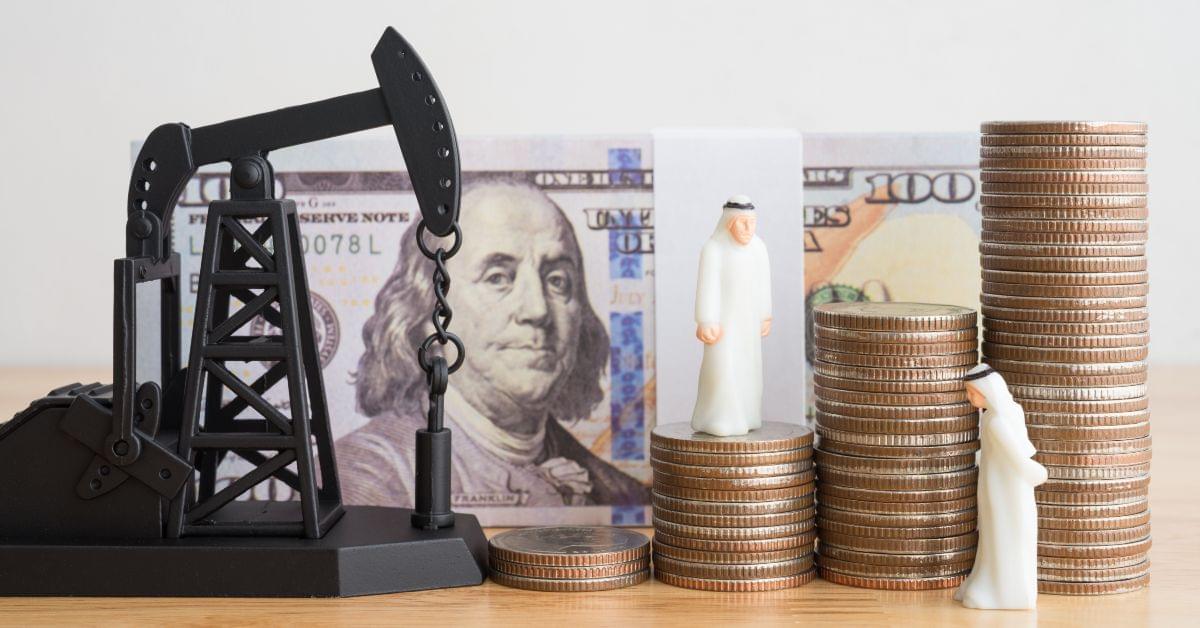
What is a petrodollar?
As referred to in our top 20 Currencies list, almost all oil is traded in dollars, which is a pillar of strength for the US. All oil trades being in dollars means that all world banks will keep a vast amount of US dollars in their reserves (sometimes more than their own currency) in order to buy barrels of oil. Profits are also taken in dollars, and often reinvested, which is referred to as petrodollar recycling.
These reserve dollars have come to be known as petrodollars (a portmanteau of petroleum and dollars). They are simply dollars, but have the status of petrodollars due to their connection to oil.
Why is oil traded in dollars?
Oil is traded in dollars because of the widespread use of the currency, which has been implemented by American foreign policy, and the fact that the US is currently the world’s largest economy and importer of goods. Wall Street also dictates much of the world’s economy, and the US still stands as the strongest military power.
The petrodollar as a term came into existence in the 1970s, alongside the spike in oil production in the Middle East.
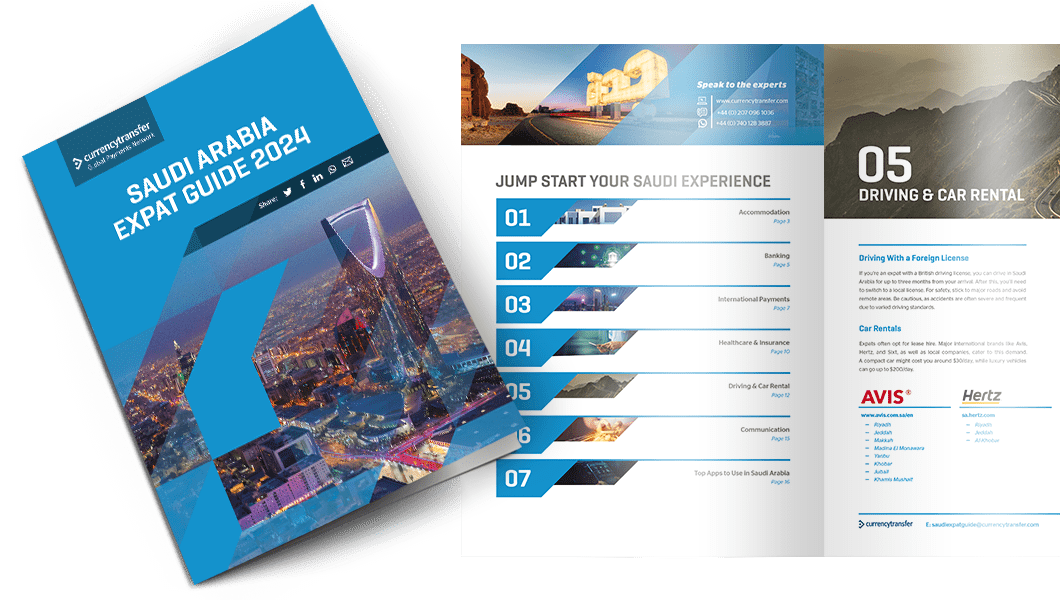
Saudi Arabia Expat Guide
Jump start your Saudi Expat experience with our free guide. With must know legal requirements for working in the Kingdom to the most recommended apps for managing your Saudi life.
How did the petrodollar come about?
Despite the dollar’s global appeal, the petrodollar arrangement did not come about by accident. In 1971, President Nixon announced that the Gold Standard would be officially ending, stemming from a concern that foreign nations would overwhelm the US system by redeeming too many dollars for gold. This caused a huge slump in the dollar, and a fear that this would trigger the abandonment of the international gold standard, and therefore the weakening of the dollar. The economic changes made at this time by President Nixon are now referred to as Nixon Shock.
During this time, there was also increased interest in the Middle East due to its rich oil reserves. Because of Anglo-American dominance in the oil economy, in 1961, The Organisation of Petroleum Exporting Countries (OPEC) was formed, initially by Saudi Arabia, Iraq, Kuwait, Iran, and Venezuela to protect the sovereignty of each country’s natural resources. It has since included Algeria, Angola, the Republic of the Congo, Equatorial Guinea, Gabon, Libya, Nigeria, and the United Arab Emirates.
A series of political movements and conflicts contributed to the 1973 oil crisis. Due to the USA’s allegiance to Israel in the Yom Kippur War, Saudi Arabia announced an oil embargo on the US in the same year, which led to the US swiftly pressuring Israel into making a deal to end the war, and having to rethink its strategy about how to control the oil production in the region.
Following this, in 1975, Saudi Arabia and the USA signed approximately $2bn worth of military contracts, leading many to understand that the US and Saudi Arabia made a deal, trading the protection of oil fields with US military power to ensure that oil sales were made exclusively in dollars, solving the fear that the US dollar would become irrelevant. Saudi Arabia also argued strongly to the OPEC to keep oil in dollars.
Before the end of 1975, all the rest of the nations in the OPEC had agreed to price their oil in dollars, and reinvest their surplus petrodollars in US government debt securities, in exchange for similar levels of military and economic protection.
There is stability and security in adhering to a common currency, as for oil proceeds to be the most efficient, it makes sense to trade in a stable, common currency. A shared currency for a commodity is natural, but the US ensured that the dollar was picked for oil.
Is the petrodollar being replaced?
The petrodollar is not being replaced, but it is certainly being challenged in 2023. After 40 years of a comfortable monopoly, the US is being challenged by China.
In 2023, there have been a few changes that suggest the petrodollar might not be as solid as once thought, and that the US might need to affirm its strength. Most notably, on March 29, Saudi Arabia announced that they have agreed to become a “dialogue partner” with the Shanghai Cooperation Organisation, the world's largest regional political and defence organisation in terms of geographic scope and population.
Furthermore, in January at the World Economic Forum in Davos, the Finance Minister of Saudi Arabia, Mohammed Al-Jadaan told reporters that with Saudi Arabi “there are no issues discussing how we settle our trade arrangements, whether it’s in the US dollar, the euro or the Saudi riyal.”
Considering the historical bond that the US and Saudi Arabia have had, these claims might seem small on the surface, but speak of a huge shift that could happen in future. Saudi Arabia is not dropping the petrodollar yet, but their activity suggests they might be considering other options. Saudi Arabia might be the keystone in the petrodollar too, and if for example, they begin to trade oil in yuan, this may cause a domino effect, and the other members of OPEC might follow suit.
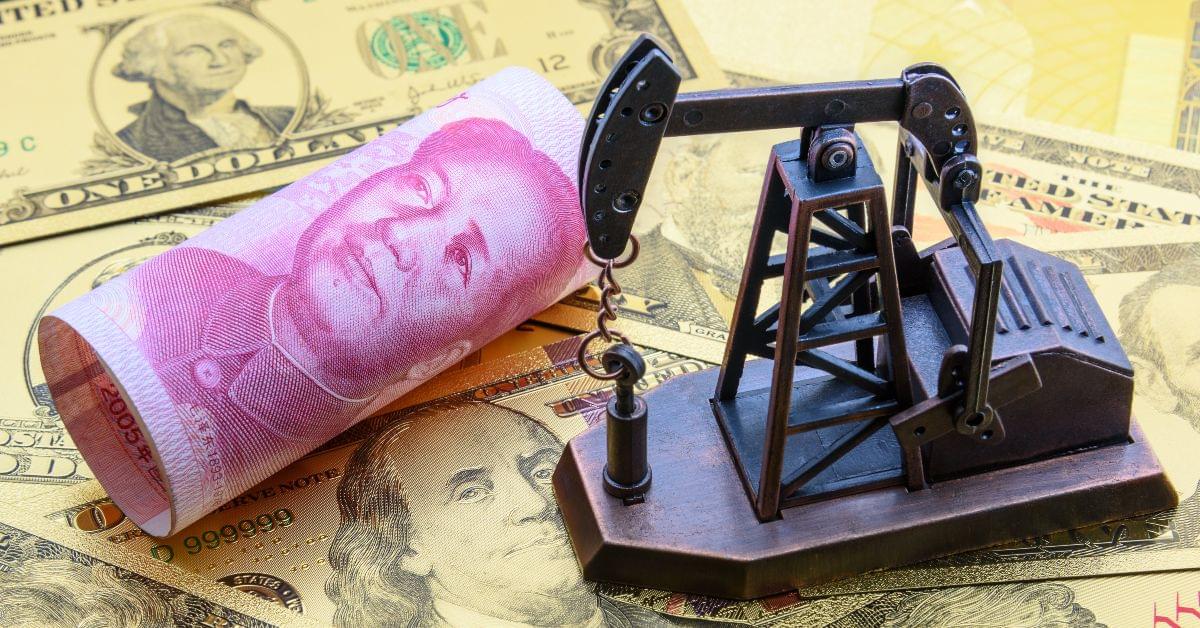
What is the petroyuan?
The petroyuan is the same as the petrodollar, but in Chinese yuan instead of American dollars. The petroyuan has only been in existence in 2017, when the People’s Bank of China made a deal with Russia to trade oil. The petroyuan is a direct challenge to the petrodollar, as it provides an alternative option, of which there is currently none, so countries now have an option to escape the hegemony of the US.
There are many who are sceptical of the petroyuan’s rise, but 2023 has been an interesting year so far, and there should be further developments as the year progresses. Saudi Arabia at the time of writing has not adopted the petroyuan officially, but there is a chance that they will start trading at least some oil in petroyuan in 2023.
Looking to transfer money from Saudi Arabia to the UK, Europe or the US? At CurrencyTransfer, we provide better-than-bank exchange rates, full transparency, access to various tools, as well as personal guidance when you need it.
Caleb Hinton
Caleb is a writer specialising in financial copy. He has a background in copywriting, banking, digital wallets, and SEO – and enjoys writing in his spare time too, as well as language learning, chess and investing.


